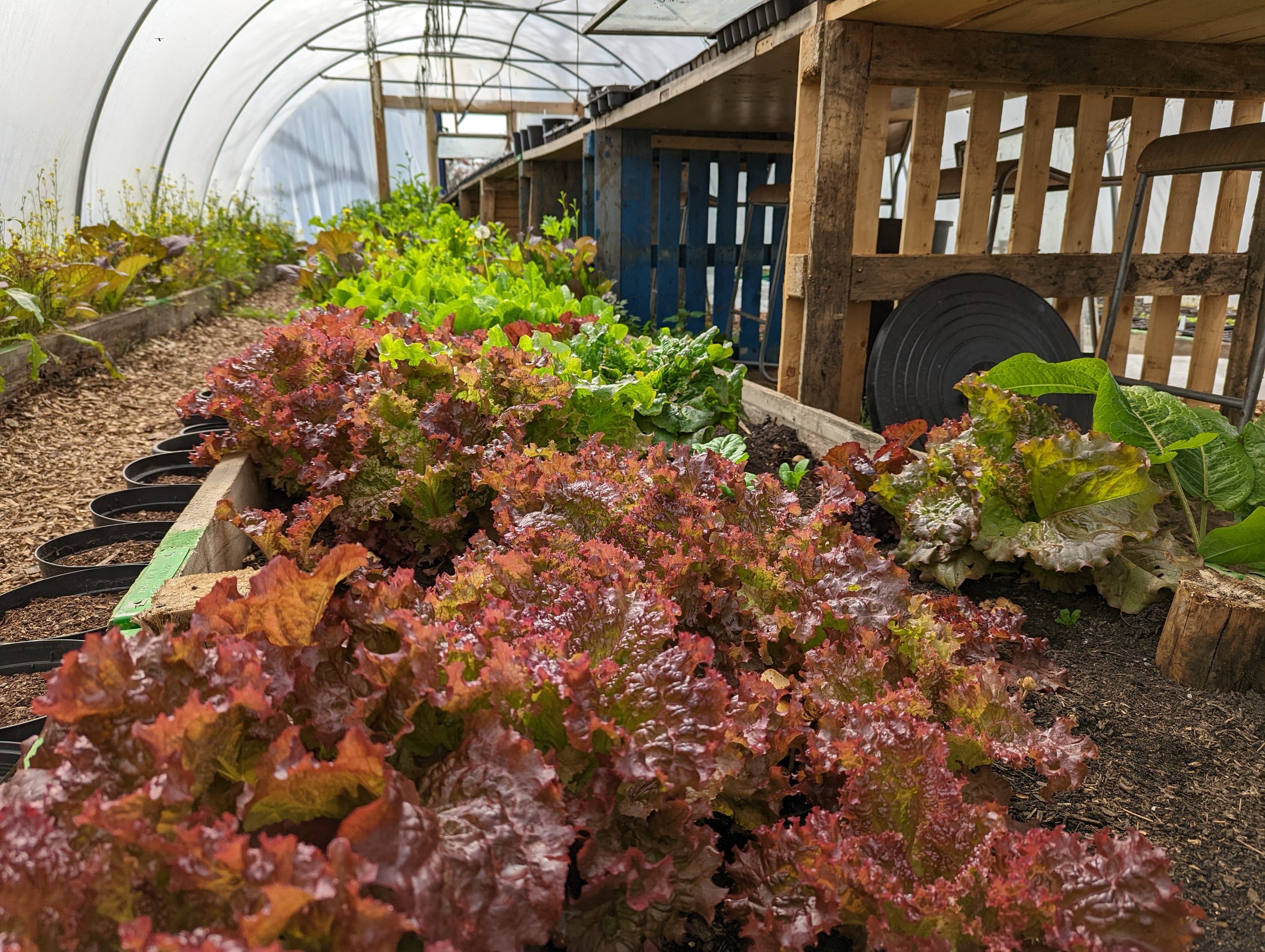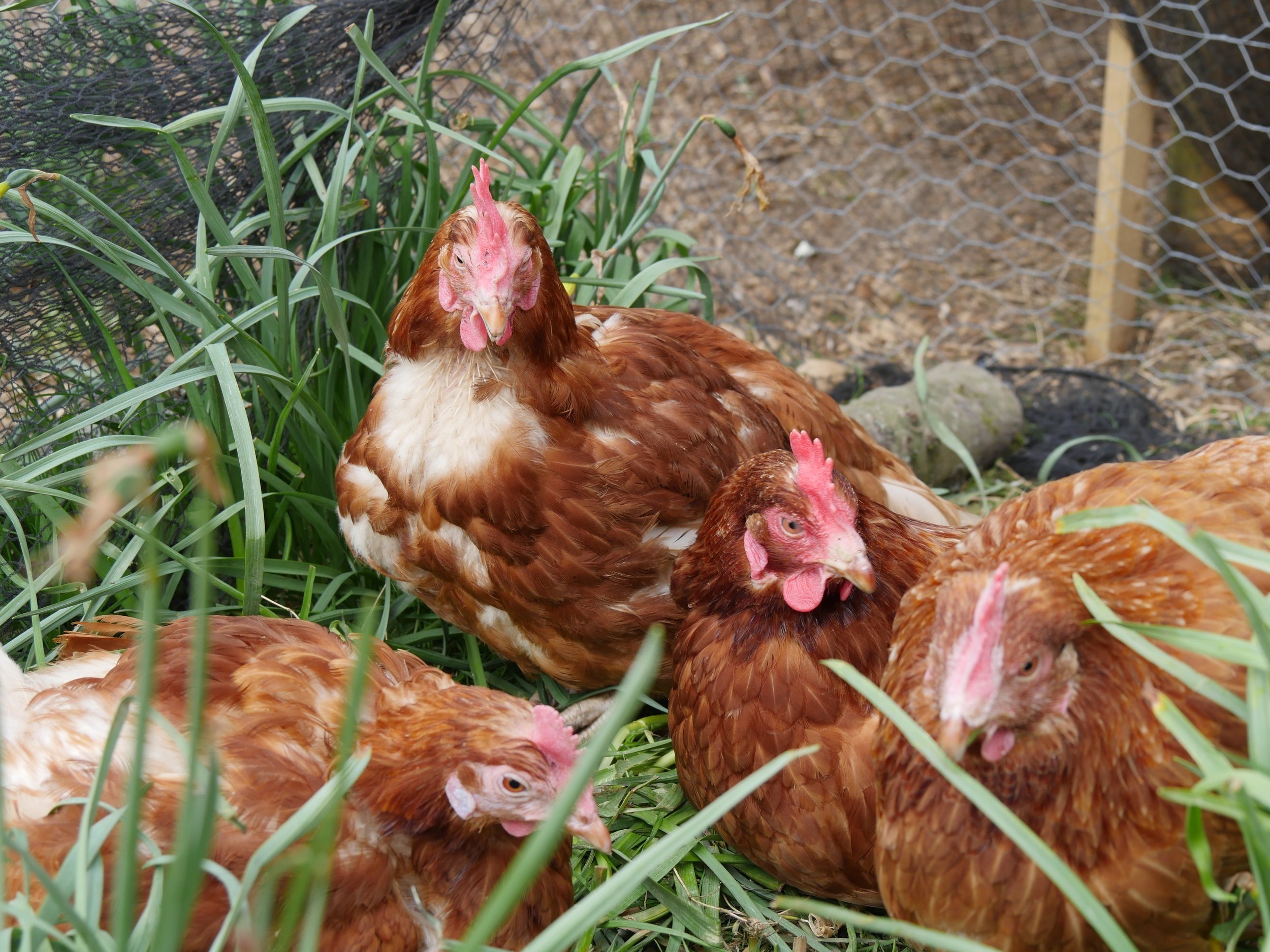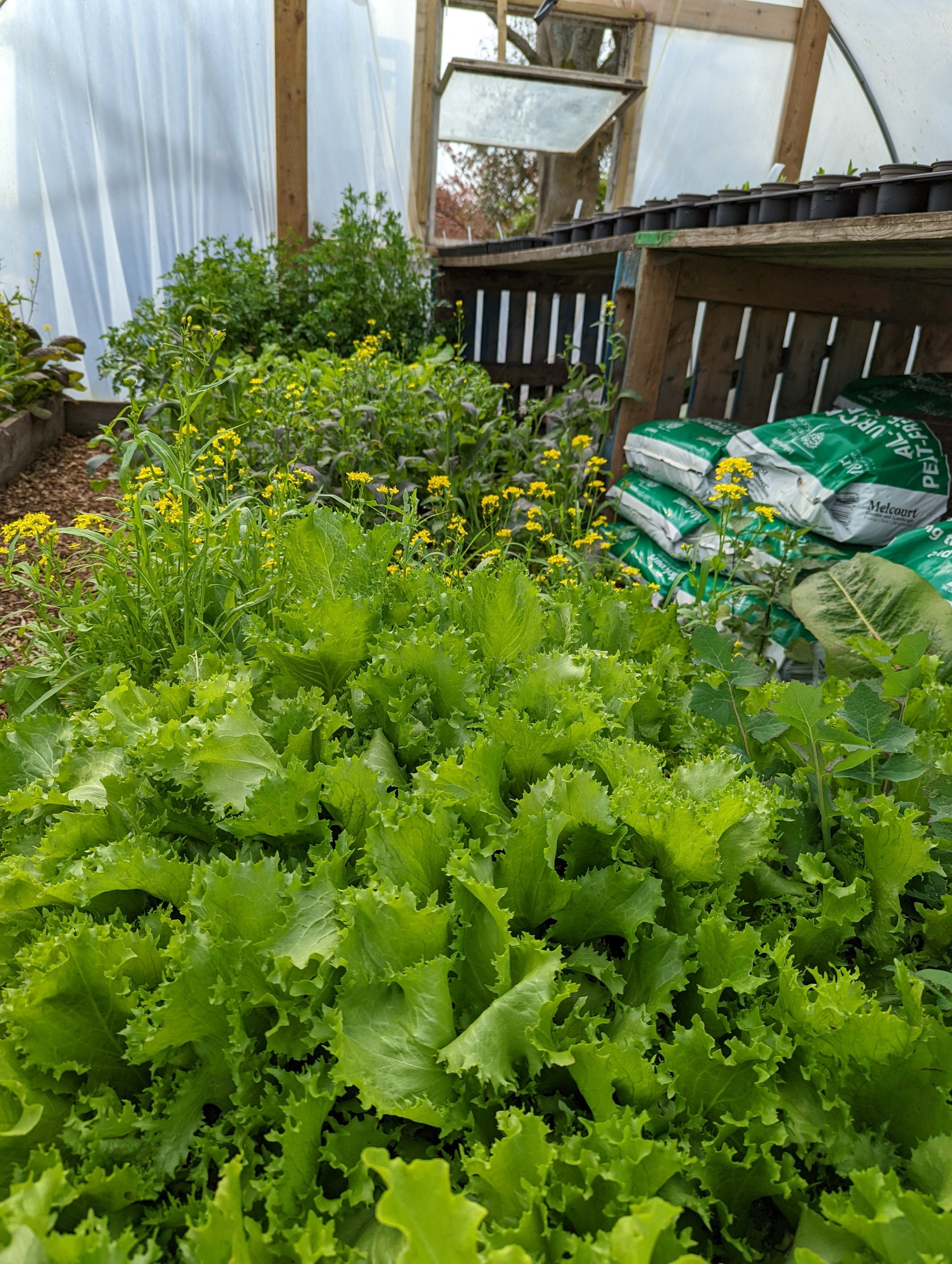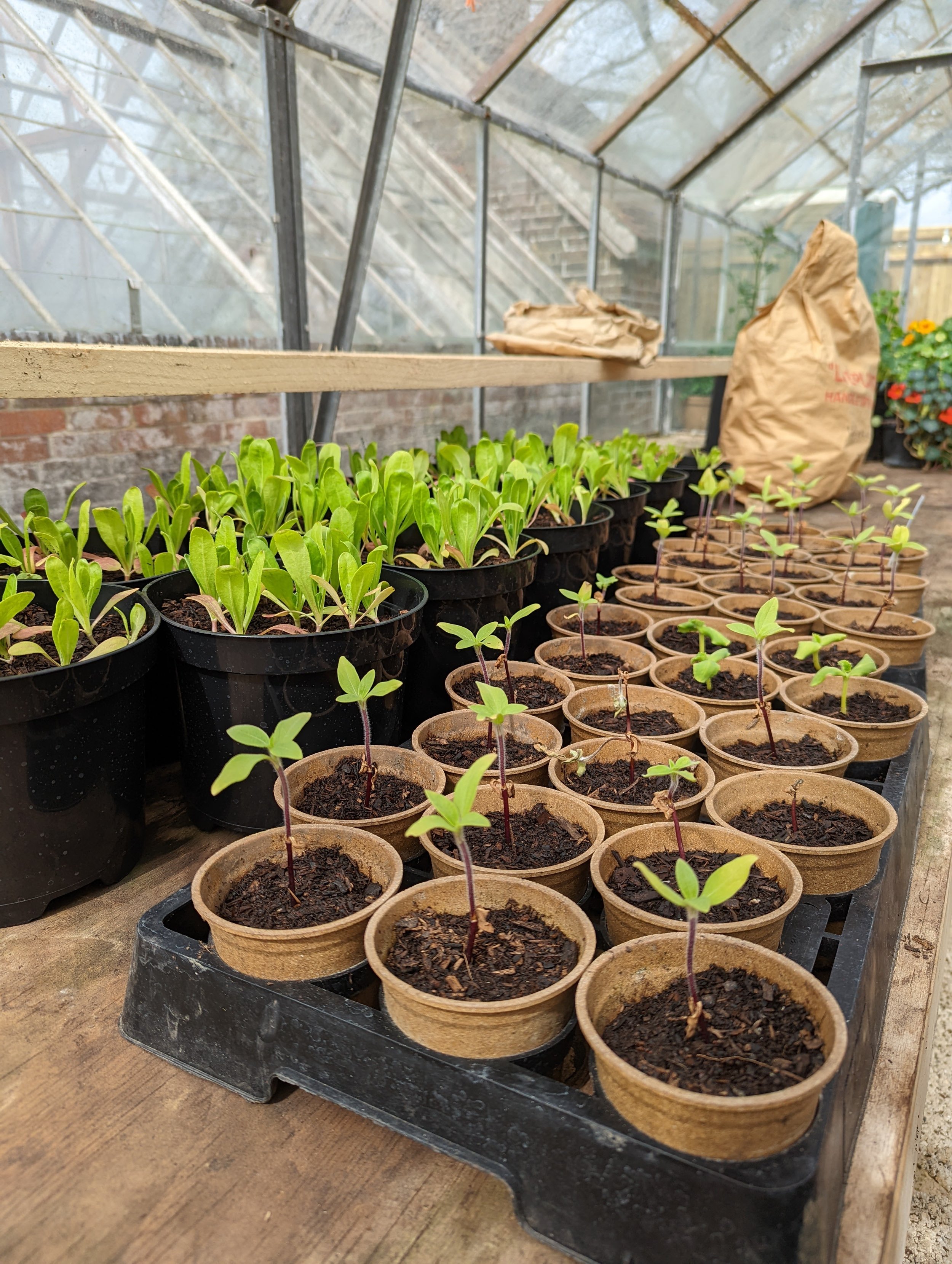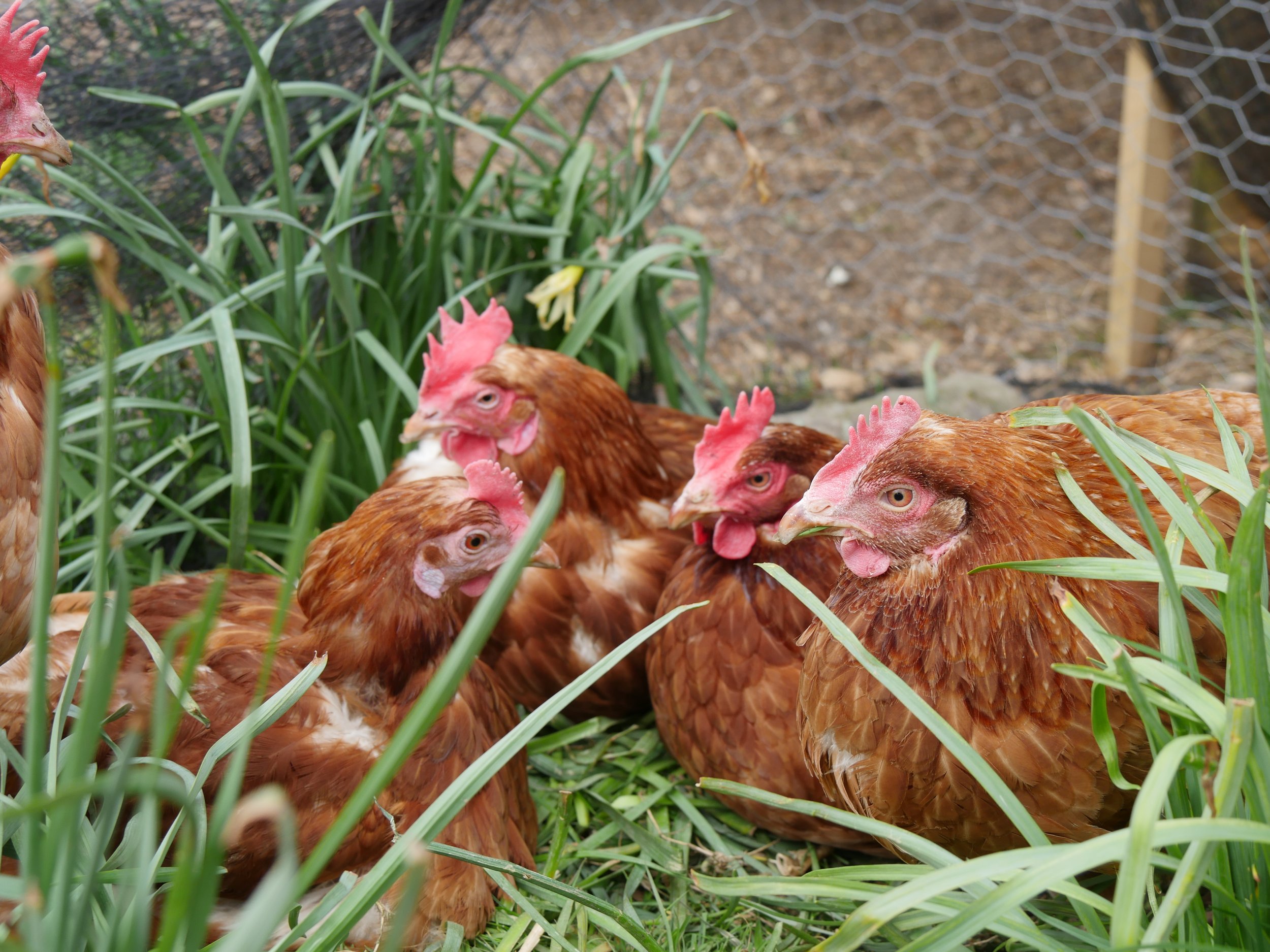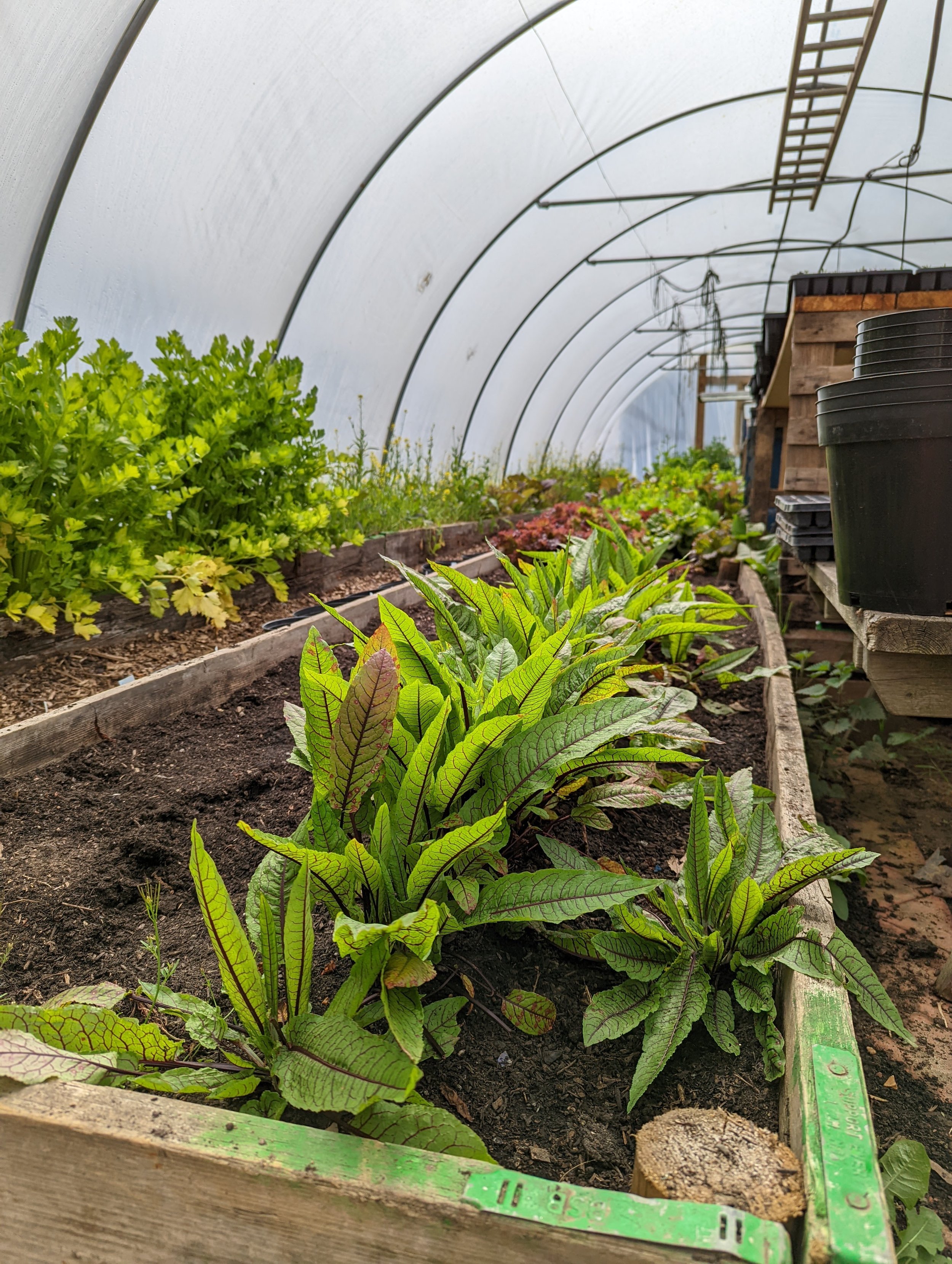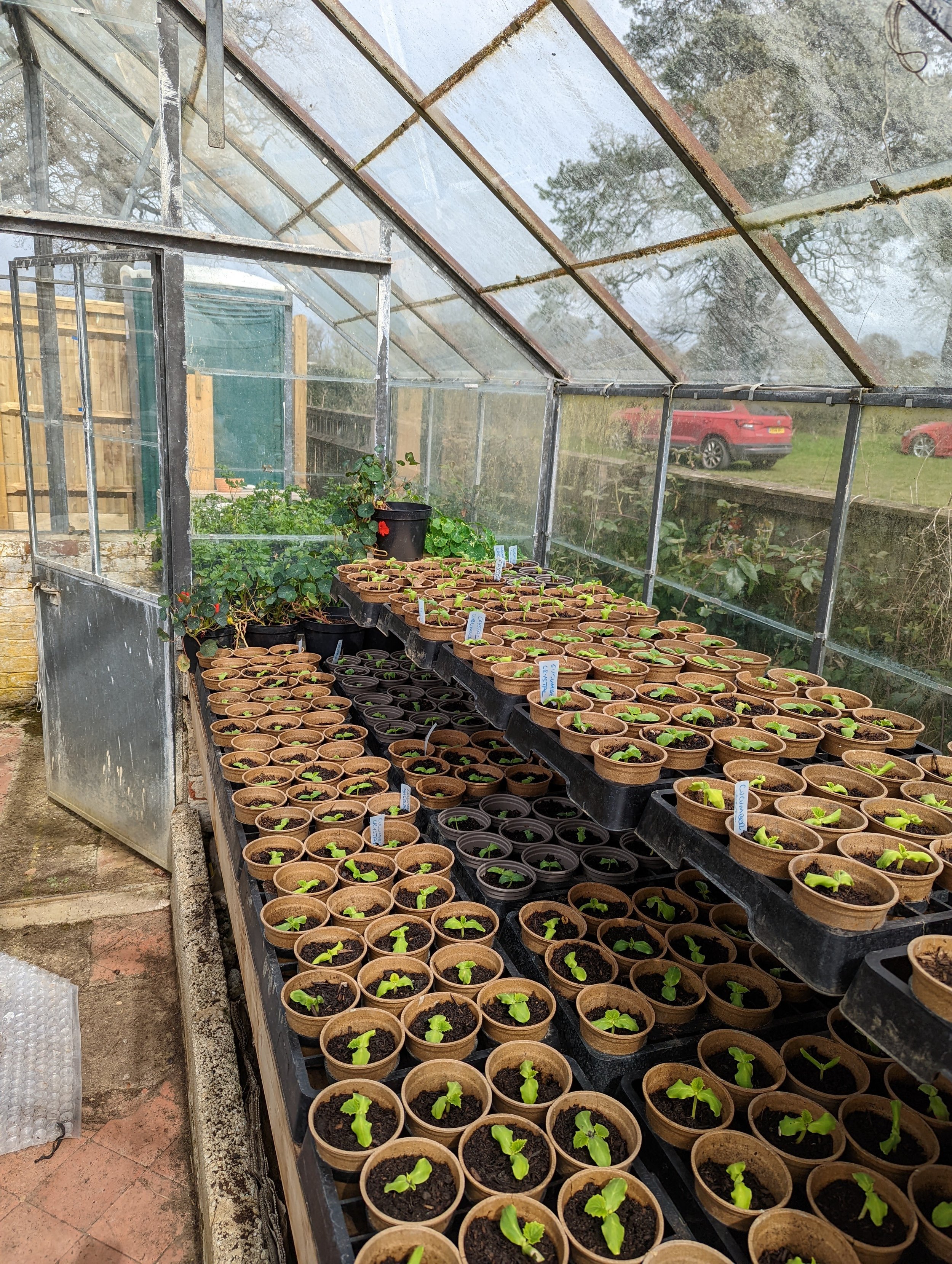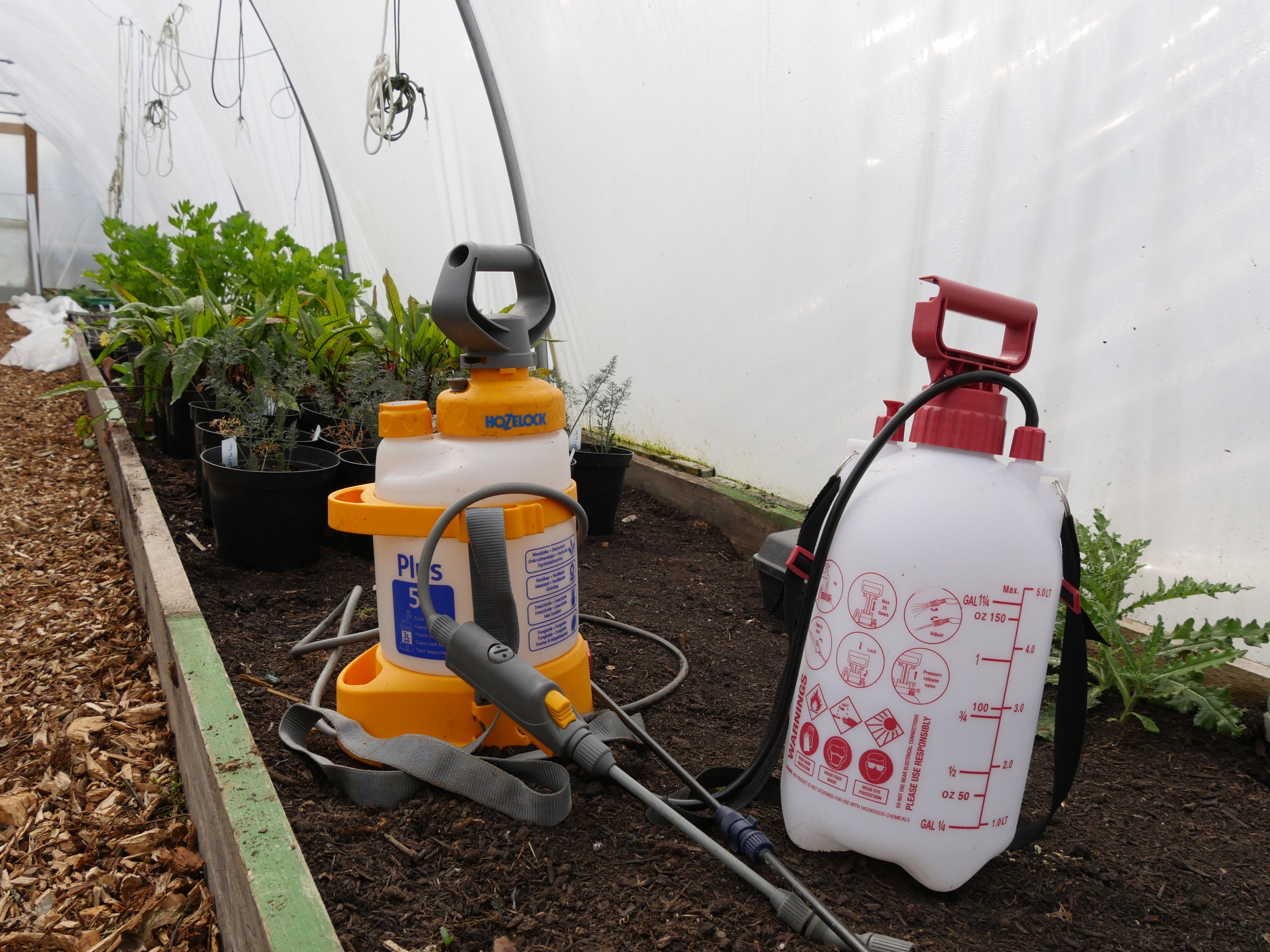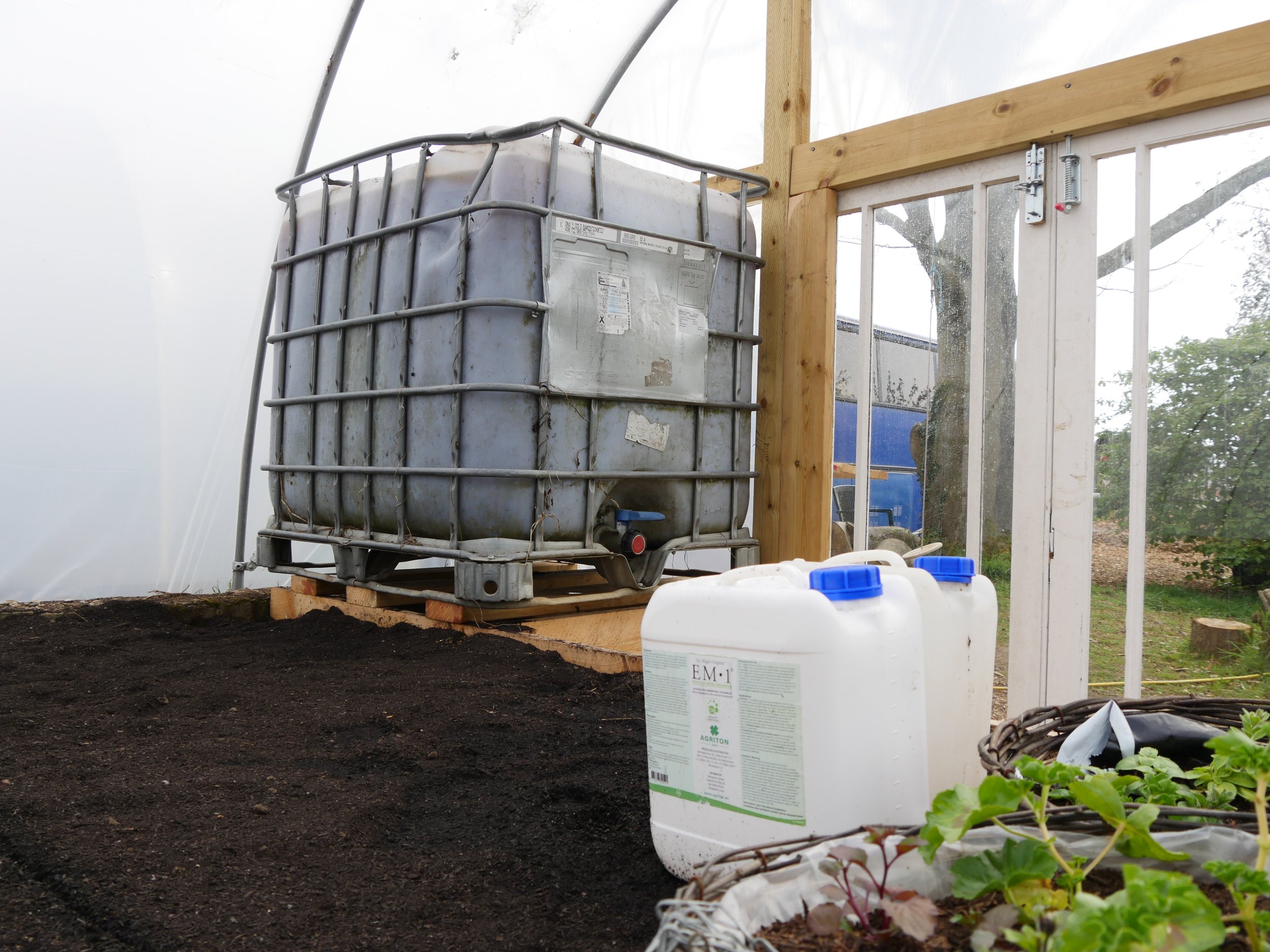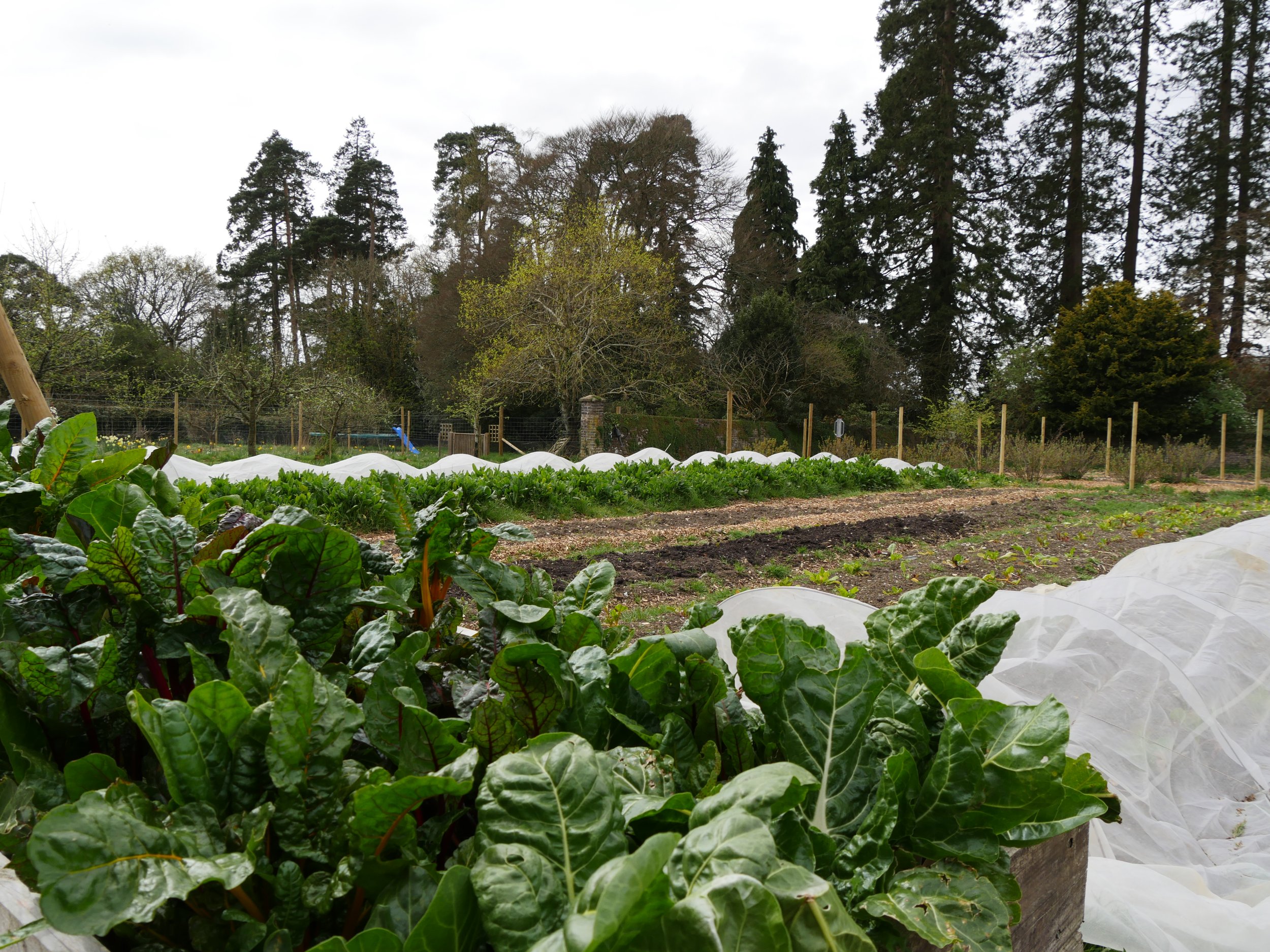Old traditions are gold traditions
Interview from 2022……..
Tom Morphew and Ronnie, his dog, started Full Circle Farms seven and a half years ago. Tom started his business by collecting food waste from restaurants and composting it on his farm. He demonstrated his ingenuity early on in his career by creating a homemade forced-air composting system attached to two bouncy castle pumps!
“I would layer the food waste with compost, adding water and EM (Effective Microorganisms) on top, allowing the two to meet; the micro-organisms would reproduce like mad, breaking down the food waste. I would then take that compost and lay it in the field about three inches thick, killing the grass and planting directly into the compost.” Recalls Tom.
Unlike traditional business models, Tom went on to create his own very viable system.
“We don’t sell the crop; instead, we sell the plot! So, we get paid monthly and don’t have to wait for the harvest to get paid! The idea was to build up enough chefs to help cover our bills, mortgage, and wages. We now have fifteen Michelin Chefs based in London who use the farm under this model.”
Full Circle Farms fields are entirely covered in compost and separated into plots. The Chefs who rent the plot benefit from the fruit and vegetables grown there by Tom and his team. A few incredibly famous chefs rent over an acre and a half of the land from Tom through an agent.
Tom’s passion is not hard to detect as he enthuses; “We help educate chefs on how their food is grown and why it tastes better using this full circle system. Full Circle Farms is genuinely unique; we produce amazing full-flavour vegetables on a small scale while never using a single drop of pesticide or herbicide.”
Tom highlighted the need to rebalance our bodies with food grown without artificial fertilisers. Identifying that, sadly, people have become far detached from living soil and the benefits it brings.
Full Circle Farms have also introduced animals into the mix, using pigs to turn over the land and fertilise the soil, and chickens scratch and level off the soil, which is then ridge into permanent beds. Tom is passionate about disturbing the soil as little as possible and ensuring that the soil is fed with compost generated on-site.
“We don’t use any chemicals whatsoever; it is all completely natural, so Chefs like Raymond Blanc and others of notoriety work with us because we produce the very best.”
To prove this, Tom invited somewhat skeptical, Chefs to the farm and ran a blind taste test comparing ‘French Breakfast Radishes’ purchased from quality supermarkets against those grown on the farm. The results were significant. All Chefs identified that the farm-grown radishes were more peppery, flavorful, and spicy; when they asked HOW Tom explained that they had not been messed around with and had been left to grow at their own speed.
“We did not force them, did not cover them in fertiliser (which literally steals the nutrients and flavours needed from the soil [1]). We let them grow as nature intended, and that is why there is this old-fashioned taste.” Tom qualified; “They call it an old-fashioned taste because that is how vegetables used to taste before we mess around with things! These vegetables were grown in healthy soil rich in trace minerals such as zinc, copper, and magnesium - this is where the flavour comes from and what is lacking from today’s produce bought in today’s supermarkets.”
Full Circle Farms feed their vegetables with EM, manures, and other own compost combinations we produce on the farm. “Everything has that proper taste, and some of the old Chefs, who remember that taste, are transported to a time when maybe they grew their own. We never use any chemicals, feed the soil constantly, and don’t make any sacrifices; that is the only way we farm. I feel we go beyond organic.” Says Tom.
Tom is hugely passionate about not using chemicals; he explains why. “We understand that some systems are so addicted to masses of chemicals that they need to be ‘weaned-off’ them, very much like a drug addict. This ‘weaning’ will eventually make the soil ready to accept the more natural fertilisers that help boost and maintain the life in the soil. Over-plowing is also an issue; not allowing the soil to rest. We need to get back to more traditional ways of farming, less industrial mass-produced.”
When Tom first started commercial growing, he did it the traditional way mixed with commercial agriculture, creating something viable. He explains how that differs; “The beds are much wider, a meter and a half; we use a bed ridging machine adapted to make 1.2m beds. The footpaths are the wheelings for the tractor, so you can still use the tractor to lay more compost on the beds, weed plants, and put amendments on.
If I went in, with my consultancy work, and said to a farmer who has already invested in £200K tractors with all the equipment on the back and say you need to lay cardboard down, he/she would laugh at me.
However, if I go with this system, you disturb the soil only once, beds have been ridged-up, and annually you add more compost and plant directly. In addition, more woodchips in the footpaths each year create a cushion and compact soil for those wheelings. A four-acre marketing garden with 1.2m wide beds for 75m, planted with various crops (no monocrops to avoid spreading diseases), will make £50-60,000 by year three. With those vegetables allocated to high-end restaurants and additional funds generated from corporate team-building initiatives, and the reward of helping support those with mental health issues – it is a hugely beneficial program, not just fiscally.”
At Full Circle Farms, their ethos is the more we feed the life in the soil and the less we disturb the ground, the healthier and more resilient plants become, which transfers to our wellbeing; that is how we get stronger.
Full Circle Farms are continually developing its systems; currently, Tom is working on building two polytunnels, each containing an extensive raised bed, creating a mini version of their external composting system. The heat emitted from these compost heaps warms the polytunnels over the winter, creating condensation that forms rain that waters all the young plants! The heat also keeps the EM warm and fermenting in tanks stored there.
“We are looking at ways to constantly use our knowledge to educate different industries on composting their waste and encouraging creative thinking on ways to restore our soil and increase the nutritional value of our fruit and vegetables as they were, traditionally, back in the 1940s[1]."
Tom also has Bokashi Bins on-site, used to compost chicken food.
Tom also runs a non-profit initiative called ‘The Garden Army’ which is a Community Interest Company (CIC). This program is designed to help people grow and heal through horticultural therapy.
Tom explains, “We care; we support those with PTSD and other mental health and wellness needs. We work together, exploring how to look after our soil, feed our soil (which feeds our veg), and how that, in turn, produces nutrient-dense, super tasty vegetables. Contact with the soil is beneficial; the serotonin produced by the microbes topically absorbed through our skin helps our ‘happy’! We work with and educate corporate teams in much the same way with impressive results.”
Agriton has donated Bokashi Starter kits to support ‘The Garden Army’ on food waste education. You can also support their mission; visit: https://www.fullcirclefarms.co.uk/new-join-our-campaign to find out how.
We will be doing a follow up interview in the next couple of months to see their progress.
[1] According to research from the Centre for agroecology, water and Resilience, Coventry University*; Fruit and vegetables sold in the UK now contain half the amount of some key nutrients as they did in 1940. There could be many reasons for these reductions, including changes in crop varieties and agronomic factors associated with the industrialisation of agriculture. Increases in carbon dioxide could also play a role. Calls for a thorough investigation of these reductions and steps to be taken to address the causes that could contribute to global malnutrition.

